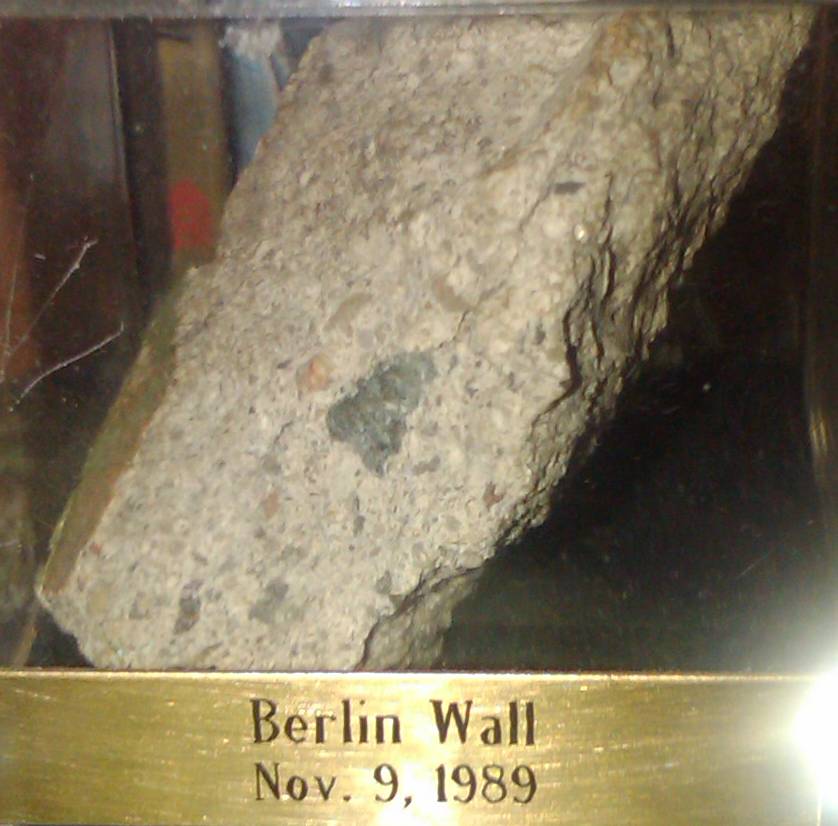POST-GAZETTE - Res Publica
Berlin Wall, 1961-1989
by David Trumbull -- August 19, 2011
 |
All that changed when Ronald Reagan became President. “My idea of American policy toward the Soviet Union is simple, and some would say simplistic,” said Mr. Reagan to an advisor back in 1977, “It is this: We win and they lose. What do you think of that?” Mr. Reagan found an ally in the fight against Communism in British Prime Minister Margaret Thatcher. “Freedom and democracy will leave Marxism and Leninism on the ash heap of history,” Mr. Reagan accurately predicted in a June 8, 1982 speach in the the British House of Commons.
On June 12, 1987 President Reagan called out Soviet leader Mikhail Gorbachev, when, standing in front of the Berlin War, and with Berliners on both sides able to hear him, Mr. Reagan said:
“General Secretary Gorbachev, if you seek peace, if you seek prosperity for the Soviet Union and Eastern Europe, if you seek liberalization: Come here to this gate! Mr. Gorbachev, open this gate! Mr. Gorbachev, tear down this wall!”The wall did come down, starting on November 9, 1989. The rest of Soviet Communism soon followed.
Polish-born and reared Pope John Paul II lent the moral weight of his office to Solidarity, the independent, Polish labor union which challenged successfully challenged the regime in that nation. Soviet General Secretary Gorbachev is often cited as having said ‘The collapse of theIron Curtain would have been impossible without John Paul II’
For nearly 50 years, from the end of World War II to the beginning of the 1990s, America faced an enemy unlike any we had known before. Victory was not won, as in WWII, by dropping more and bigger bombs, nor, as in WWI, by wearing out an enemy with a war of attrition, nor, as in our Revolutionary war, by unconventional fighting techniques combined with assistance from foreign allies to defeat a larger, stronger, and better equipped foe. Communist ideology and thuggery collapsed under its own weight of lies once leaders such as Thatcher, Reagan, and Pope John Paul II stood up to it. Today we again face an enemy unlike conventional military foes. Defeating the terrorists bent on destroying our way of life will, likewise, require new leaders who can recognize and stand up to a new sort of enemy.
--30--